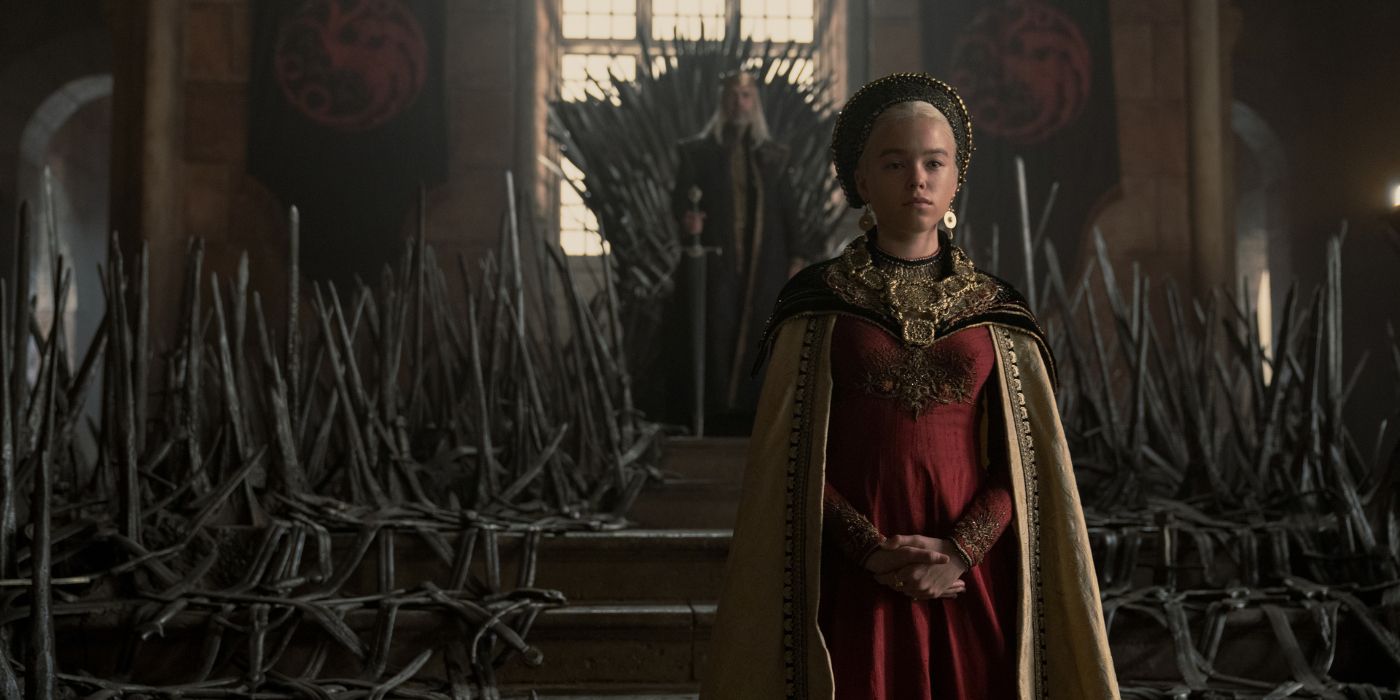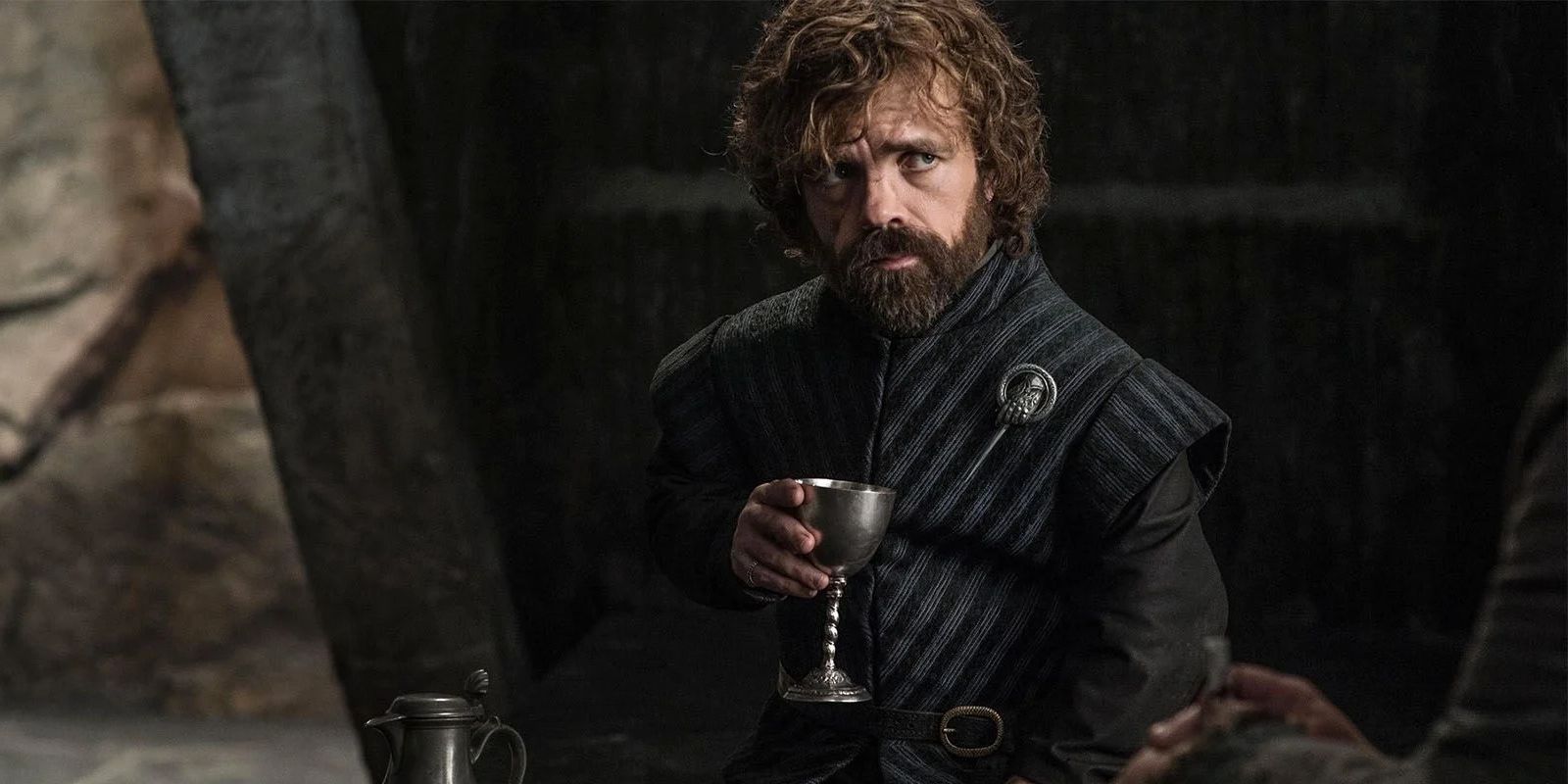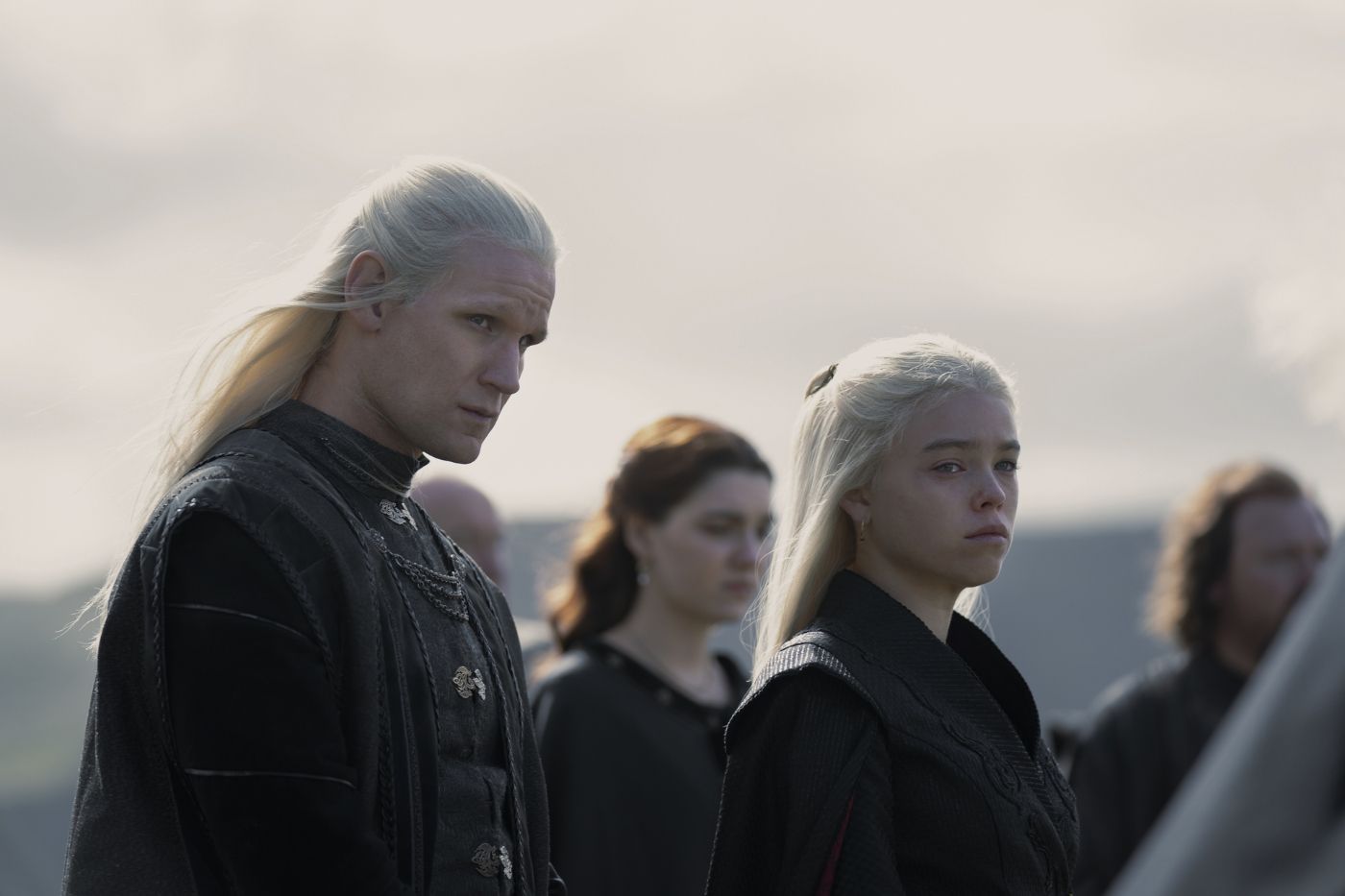Editor's note: The below article contains spoilers for House of the Dragon.The first two episodes of House of the Dragon played the hits in many ways. There was brutal violence, soaring dragons, fiery debates over succession, and the infamous Game of Thrones brand of gratuitous sex. Yet, there is one essential element from the original series House of the Dragon has so far failed to introduce: a sense of humor. Where is the witty banter? The gleefully drunk whoring? The medieval sex puns (who can forget “A sword-swallower, through and through”)? House of the Dragon has admirably recreated much of what made Game of Thrones landmark television, but without this crucial piece, the series could become a real drag quick.
Lest we forget, Game of Thrones achieved its landmark success despite its infamously dense (and unapologetically geeky) source material. Dragons, incest, and ice zombies (oh my!) were not standard fare for hit TV shows. Yet, it still managed to become one of the most successful series of all time, a last gasping breath of the monoculture before we fully subsumed to individually experiencing culture on our phones. How did the show take fringe fantasy elements usually reserved for heavy metal lyrics and table-top RPG games and make them appeal to the masses?
Because Game of Thrones was funny. Not laugh-out-loud funny, but at the very least self-aware. And it had to be. David Benioff and D.B. Weiss, the creators of Game of Thrones, took George R.R. Martin’s fantasy series and successfully boiled it down to its essence: a family drama married to a political thriller. But even in its most distilled form, their talky drama was built on a fantasy genre foundation, one where the dramatic stakes were supplied by an invading army of the living dead. So the creators decided to do the sensible thing: they hung a lantern on the fanciful, usually through Jim Halpert-esque nods or quips that said to the audience, “Yeah, we know this is a lot too.”
More often than not, that role fell to Tyrion Lannister (Peter Dinklage). With a biting smirk and a swig of his always-full wine glass, you could reliably count on the fan-favorite imp to look around the room, call out the self-seriousness of it all and remind us this is supposed to be fun. His zingers are too many to list here, but the levity he injected into the series always buoyed the show (even at its most heavy). Remember when Catelyn Stark (Michelle Fairley) brought him to the Vale to stand trial for his crimes, and he unabashedly “confessed” to how many times he had pleasured himself? How about when he summited The Wall, Westeros’ lone defense against zombie hordes, only to relieve himself at the top of it? Or his frequent barbs at his older sister’s propensity for the always-funny-subject of… incest? All were arrows in Benioff and Weiss’ quill, employed whenever the long night felt too dark.
Tyrion wasn’t their only ace in the hole, though. The creators infused Game of Thrones with comedic relationships that were just as home in Westeros as they would have been in an ‘80s buddy-cop film. There was Tyrion and Bronn’s (Jerome Flynn) multi-season bromance, Littlefinger (Aidan Gillen) and Varys’ (Conleth Hill) catty disputes at court, Tormund Giantsbane’s (Kristofer Hivju) relentless flirting with Brienne of Tarth (Gwendoline Christie), not to mention Jon Snow’s (Kit Harington) weary mugging at ne’er-do-well Samwell Tarly (John Bradley) as he fumbled around North of The Wall. Beyond comic pairings, Game of Thrones gave us sight gags like 8-year-old Robin Arryn (Lino Facioli) breastfeeding and Tywin Lannister (Charles Dance) meeting his demise on the toilet, one-off comedic premises like Podrick Payne (Daniel Portman) being so good at intercourse prostitutes dismissed payment, and The Hound’s (Rory McCann) repeated weaponization of any/all swear words for comedic effect throughout the series. All these elements served the same purpose: reining in the fantastical to bring the show (and audience) back down to Earth.
That’s why the lack of any comedic relief in House of the Dragon is so surprising. It’s all the same setup without any of the punchlines. The most frustrating is you can feel scenes come tantalizingly close to breaking a smile. Daemon Targaryen (Matt Smith) lets loose a “c*nt” in the premiere that would make The Hound proud but otherwise isn’t allowed to operate outside his assigned role as a stiff villain. In Episode 2, Rhaenys Targaryen (Eve Best) seems on the verge of some Cersei Lannister-level sass in her parapet heart-to-heart with Rhaenyra Targaryen (Milly Alcock), but similarly isn’t given a chance to let loose (all the more vexing given there’s no doubt Best could give it as good as anyone in the original GOT). Then there’s the looming specter of The Crabfeeder, a name so silly it’s shocking how easily everyone on The Small Council utters it repeatedly without so much as a smirk (where’s Tyrion when you need him?).
This could explain why you may have found yourself scrolling on your phone during either episode. Rather than a knowing wink to keep the court politics light, House of the Dragon asks the audience to keep a straight face as it assaults with bleached wigs, “good morrows,” and even potential child marriages. Without the snark of a Tyrion, Lady Olenna (Diana Rigg), or Jaime Lannister (Nikolaj Coster-Waldau) to bring us back into the scene, it’s understandable if your eyes glaze over at the show’s seemingly endless amount of talking-in-rooms (are emergency meetings of The Small Council necessary if it’s apparently always in session?). Without some humor, all the on-screen maneuvering for power over the Seven Kingdoms is just that: politics. House of the Dragon desperately needs more self-aware comedy if HBO expects us to watch the series for the next 3+ years. Until then, at least we have the dragons.
House of the Dragon premieres new episodes every Sunday on HBO and HBO Max.



